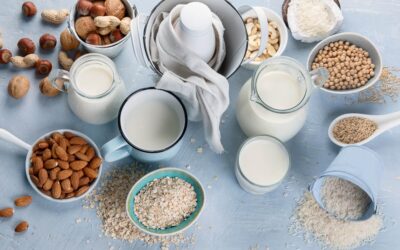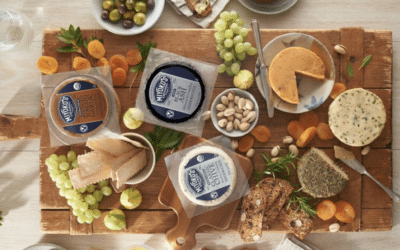My story begins and ends with a disease that I learned to live with after I stopped consuming animal products and started learning how to eat. I lived in shame and confusion as a kid growing up with type 1 diabetes; I felt like diabetes was my weakness. Soon after being diagnosed at 11 years old, the shame amplified with weight gain during puberty. I quit dance class, stopped riding my bike, and ate as much food as I wanted to avoid low blood sugar. My condition required me to take on more responsibility than other kids my age, as managing diabetes requires constant attention. Because of this, I grew up fast for the purpose of self-preservation, and I learned to pay attention to how I felt.
Living With Type 1 Diabetes
Children and adults living with diabetes have a lot to worry about on a daily basis. Every day can fluctuate, and one must constantly make decisions about food, insulin dosing, and blood glucose levels to effectively manage this disease. People with type 1 diabetes are insulin dependent, which means insulin must be injected manually with a needle, an insulin pen, or a wearable pump. However, in addition to accurate insulin dosage, making healthy choices is the key to living a full life despite this disease.
Our cells require insulin and glucose for energy to keep us in a constant healthy state. As a result, people with diabetes can experience complications related to poor glucose control that is directly impacted by lifestyle choices. A good day with type 1 diabetes can go very badly in an instant from a slip-up in dosing, a skipped meal, or unplanned exercise. As a community, we have a tendency to become controlling, obsess over food, and are more likely to develop depression than people without diabetes. The underlying issue with physical and mental complications is inflammation to tissues. Stress and pressure on blood vessels are not just caused by high blood sugars, but also by food choices that are inflammatory. What foods are considered inflammatory? Meat, dairy, processed animal fats, sugar, soda, and fried foods.
Making the Switch to Plant-Based
Several years before I started studying nutrition and metabolism, my decision to stop eating animal products was primarily a moral obligation. I was hoping to lose some weight in the process, but this was a half-hearted reason, as I had had several failed weight loss attempts before. To my surprise, avoiding meat and dairy was much easier than I thought it would be. It was not restricting at all, and my daily diet even expanded in variety with all the plant foods I began to incorporate. I made a point to eat more anti-inflammatory and fiber-rich foods, and I was actually enjoying it!
Within a few weeks, I noticed that my blood sugar was running much lower than normal and I was constantly drinking juice to meet my typical daily dose. This pattern became the new norm so I decided to decrease the amount of insulin I took with meals. I continued to decrease it, again and again. What was happening?! Truly, I had no idea. I didn’t know anyone who was a vegetarian and certainly not a vegan with diabetes. Nevertheless, it became crystal clear that all the signs and symptoms pointed in one direction—my new eating habits were dropping my insulin needs. Realizing what was happening became an epic turning point in my life and sparked my interest in nutrition.
From a Dietitian’s Perspective
My path to becoming a registered dietitian emerged from two questions: 1). Why have I become so much healthier since I quit eating animal products? and 2). Why didn’t the clinic teach me about this a long time ago? I was driven and a little angry but mostly hungry for information.
First and foremost, the job of a registered dietitian is to deliver evidence-based recommendations and be diligent in translating complex information into a consumer-friendly language. Part of the decoding process of scientific studies is to recognize that not every study is reliable and often needs more research to present a valid conclusion. Bias is often evident in the fine print that informs readers where funding for the study comes from. When the purpose of a study is to prove nutritional necessity, it would be highly unlikely that an industry funded-study would be published if results could potentially turn off consumers. This explains why consumers only see dairy-funded studies that frame dairy foods in a positive light.
Researching the dairy industry was the last thing I wanted to do. I knew I would encounter animal cruelty issues, but the deeper I dug into milk and cheese, the more evident it was that the result of cruelty is also imposed upon human consumers through deception.
The dairy industry is not in the business of promising healthy outcomes yet, we have been misled to believe that if we do not consume dairy products we will not thrive. Dairy became a food group to help people consume adequate amounts of calcium, potassium, protein, and vitamin D, which are necessary supplements for many people whether choosing to eat dairy or not. As a result of these essential nutritional recommendations, the dairy industry has only to instill fear that without their products, we might not obtain our best health. However, dairy is often consumed in excess of daily recommendations, many times by children who are not given much of a choice.
I was one of those kids that started out my day with sugary cereal drowned in milk for breakfast, cheese pizza at school for lunch, a cheese stick and yogurt for a snack, broccoli covered in cheese for dinner (washed down with a glass of milk), and if I got “lucky,” ice cream for dessert. Everything I grew up eating on a daily basis was practically lactating!
The million dollar question was: how did this affect my diabetes?
Diving headfirst into every publication I could find on insulin resistance and animal products is how I learned that consuming dairy isn’t necessary, and it can even be detrimental to our health. This is especially critical to understand for a person with a chronic disease.
Dairy products are inflammatory due to fatty acids, sugar, and the protein, casein. Cheese is mostly saturated fat and often difficult for people to limit in portion size. Overall, dairy consumption is typically on a level well in abundance of daily recommendations, which sets the body up for a constant state of inflammation. With more than half of the human population having an intolerance to lactose, imagine the internal damage that can result from a diet that consistently includes dairy!
The answer for me was finally simple to understand; eating less inflammatory foods increased my insulin sensitivity and improved glucose uptake into my cells. My metabolism became more efficient, and I knew this was happening because I had more energy and mental clarity than I had ever experienced before. With great emotion, I realized that I had never experienced what it was like to be healthy in all my years with diabetes until I gave up dairy.
I’m an average person who took extraordinary measures to take her health back. I found motivation through compassion, learned to accept my condition, and turned it into a profession that potentially saved my life. In the beginning, this was a self-help mission, but I have vowed to never forget what it feels like to be an ashamed and confused patient. As a dietitian, I want to be part of the solution to all my patients’ ailments. This is my commitment to those living with chronic disease who just need a little spark to change their fate.
Written by:
Lauren Plunkett RDN, LD, CDE
https://www.lpnutritionconsulting.com








